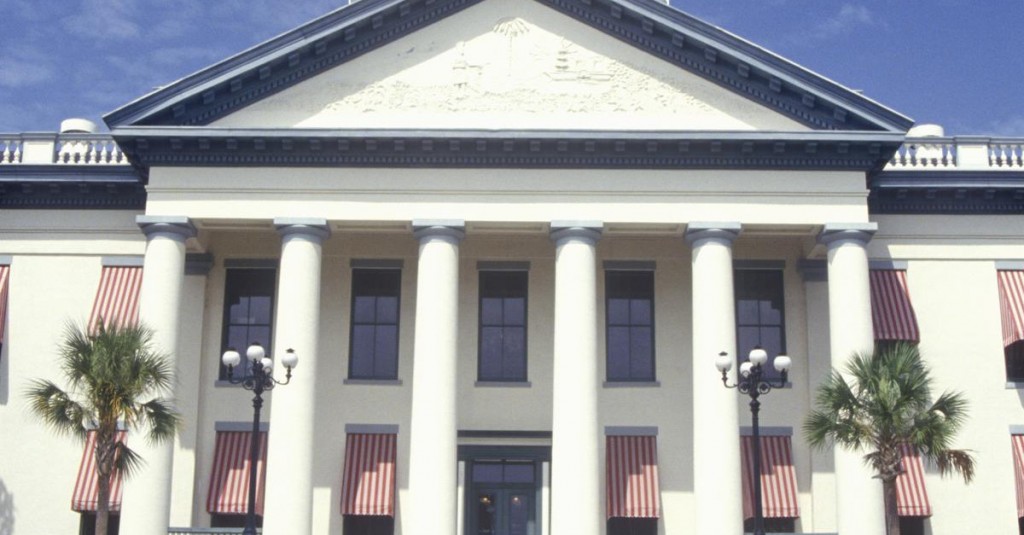How much of the heavy lifting got done….
By JIM SAUNDERS
THE NEWS SERVICE OF FLORIDA
Florida lawmakers gather today at the Capitol to pass a new state budget. But for the most part, the annual legislative session ended Friday night when the House and Senate adjourned after a final round of negotiating and maneuvering.
As always, the Legislature considered hundreds of bills during the session, with many passing, many dying quietly and others flaming out because of disagreements between the House and Senate.
Here is a quick look at 10 big issues:
BUDGET: House and Senate leaders struggled to reach agreement on a spending plan for the fiscal year starting July 1, with the sometimes-contentious process forcing them to extend the session through Monday. Lawmakers will vote on an $82.4 billion budget, though that figure does not include some costs tucked away in other bills. The budget will provide a modest increase for the main formula for school funding, give state employees their first raise since 2013 and take into account a package of tax cuts.
DEATH PENALTY: Florida’s death penalty has been on hold since January 2016 because of rulings by the U.S. Supreme Court and the Florida Supreme Court. But lawmakers moved quickly during the session to address one key legal issue. They passed a measure that requires unanimous jury recommendations before defendants can be sentenced to death. The Florida Supreme Court last year struck down a law that required only 10 of 12 jurors to agree on recommending death sentences.
ECONOMIC DEVELOPMENT: Gov. Rick Scott spent the final days of the legislative session traveling the state in a last-ditch effort to pressure lawmakers on the issues of funding economic-development agency Enterprise Florida and tourism-marketer Visit Florida. But Scott, who battled throughout the session with House Speaker Richard Corcoran, R-Land O’ Lakes, about the programs, got little of what he wanted. That has led to widespread speculation that Scott could go so far as to veto the budget.
EDUCATION: Corcoran and Senate President Joe Negron, R-Stuart, had two different sets of education priorities — but both largely got what they wanted. Lawmakers will vote Monday on what is known as a budget conforming bill that includes Corcoran priorities such as the “schools of hope†program, which will encourage charter schools to open near academically struggling traditional public schools. Negron, meanwhile, focused on bolstering the university system and got agreement on issues such as expanding the Bright Futures scholarships program and requiring universities to offer block tuition, which involves students paying a flat fee per semester rather than a credit-hour charge.
GAMBLING: With the incentive of trying to reach a new gambling deal with the Seminole Tribe of Florida, the House and Senate worked on plans that could have revamped the state’s gambling industry. But the efforts collapsed early in the final week of the session, with House and Senate negotiators unable to reach a compromise. Among the key differences was the Senate’s support for allowing slot machines at pari-mutuel facilities in eight counties where voters have approved the machines in referendums — an issue opposed by the House, which wanted to take a more status-quo approach to gambling.
GUNS: Second Amendment supporters got a win late Friday when lawmakers approved a plan to shift a key burden of proof in “stand your ground†self-defense cases, an issue backed by groups including the National Rifle Association. But other high-profile gun issues got bottled up in the Senate early in the session and did not pass. Those issues included a proposal to allow people with concealed-weapons license to carry firearms on college and university campuses and a proposal to allow license holders to openly carry firearms in public.
HEALTH CARE: Corcoran and other House Republican leaders pushed for easing health-industry regulations, arguing a more free-market approach would help improve access to care. But the Senate scuttled high-profile House proposals such as eliminating what is known as the “certificate of need†approval process for building hospitals. Similarly, the Senate never took up a House proposal that would have changed criteria for the addition of hospital trauma centers, long a contentious issue in the hospital industry.
INSURANCE: After regulators last year approved a 14.5 percent increase in workers’ compensation insurance rates, lawmakers faced pressure from business groups to make changes that would hold down rates. But the House and Senate could not agree on a plan, with the differences largely focused on proposals to limit fees for injured workers’ attorneys. Lawmakers also did not move forward with a proposal to repeal the state’s no-fault auto insurance system and could not reach agreement on an issue known as “assignment of benefits,†which property insurers blame for increased homeowners’ rates.
MEDICAL MARIJUANA: The House and Senate adjourned Friday night without approving a plan to carry out a November constitutional amendment that broadly legalized medical marijuana in the state. Negotiations about the issue continued through the final days of the session, but the failure to agree on a bill will leave implementation of the voter-approved amendment to state health officials. A key difference between the House and Senate centered on how many marijuana dispensaries the state should have.
WATER: Along with pushing for changes in the university system, Negron made a top priority of building a reservoir south of Lake Okeechobee. The issue hit home for Negron: Polluted discharges from the lake have fouled waterways in Stuart’s Treasure Coast district, and the reservoir could help alleviate the problem. Negron’s proposal initially drew heavy opposition from farmers, including the sugar industry, and some community leaders south of the lake, but the Senate and House ultimately agreed on reservoir plan after Negron made changes.
— News Service staff writers Lloyd Dunkelberger, Brandon Larrabee, Dara Kam and Jim Turner contributed to this report.
